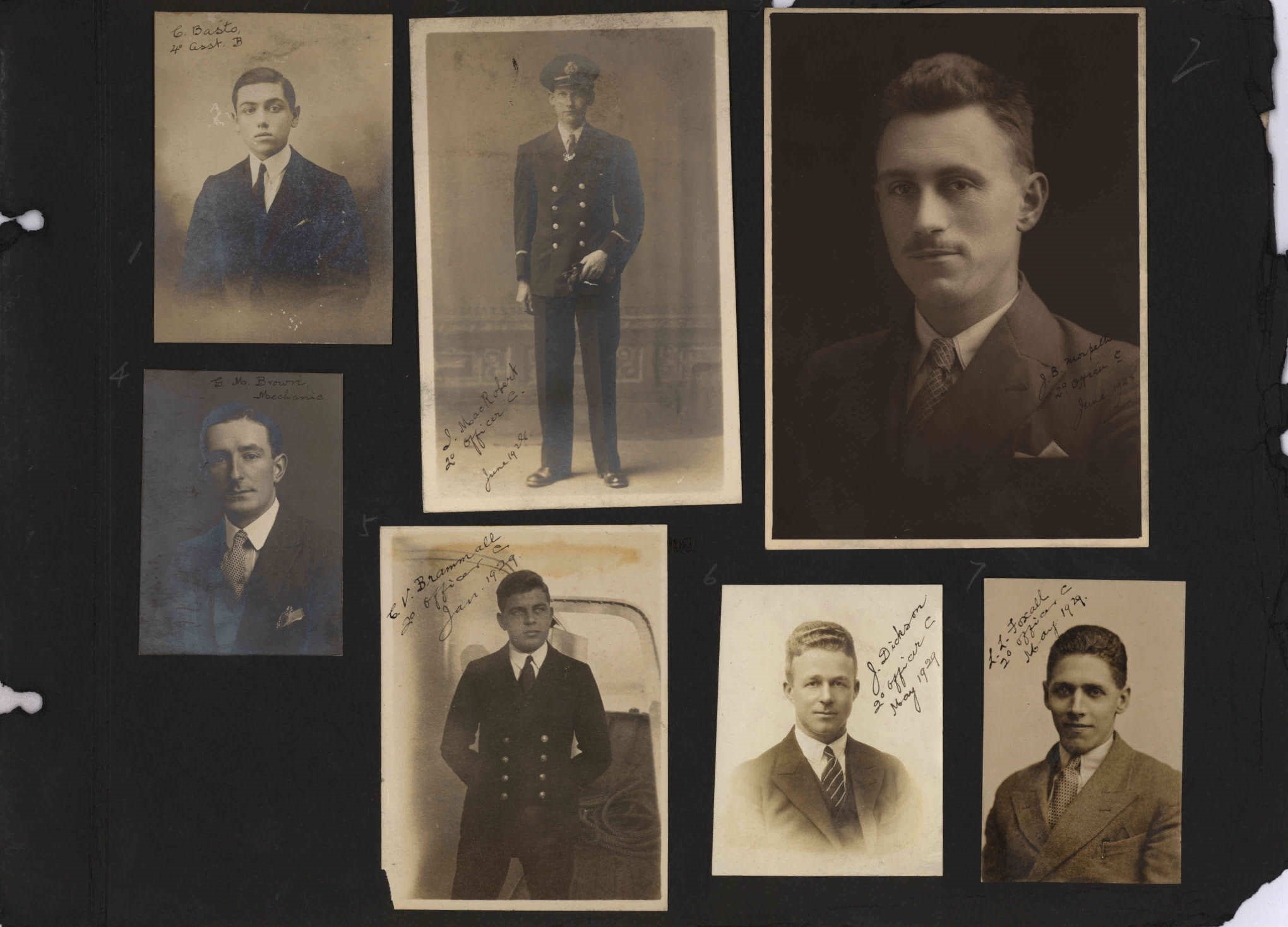| By Richard Horowitz, Professor of History |
Richard Horowitz is a Professor of History at California State University. Trained as a historian of modern China, he subsequently developed a second specialization in the emerging field of World History. His research explores the intersection of China and processes of global integration from the 1820s to the 1920s. He teaches courses on China, Japan, World History, and historical methods.
This is an excerpt from an essay by Professor Richard S. Horowitz entitled “The Chinese Maritime Customs Service, 1854–1949: An Introduction”.
For almost a century, the Chinese Maritime Customs Service played a central role in the relationship between China and the global economy. The Customs Service was part of the Chinese Government, but it was led by foreigners. Technically, its role was limited to ensuring the accurate assessment of Customs duties (taxes on imports and exports). However, over time, it became involved in many activities including the maintenance of harbors and lighthouses, the payment of foreign loans, the preparation of a very wide range of published reports, and the provision of technical assistance to the Chinese Government. Customs officials were often involved in diplomatic discussions and served as informal intermediaries between Chinese officials and foreign representatives.
Customs archives are uniquely valuable sources for understanding China and the Chinese economy in this period. At a time when relatively few foreigners cared to learn Chinese, the Customs commissioners were required to be proficient. Plus, because they had constant contact with Chinese officials, foreign diplomats, and businessmen of all nationalities, Customs commissioners were often exceptionally well informed.
To understand the material included in China from Empire to Republic: Records of the Maritime Customs Service of China (1854–1949), a new online database from Gale releasing on August 25, a certain amount of background will be very helpful.
The Origins of the Customs Service
The roots of the Customs Service lay in Shanghai in the tumultuous 1850s; a time when China was rocked by the massive Taiping rebellion and many smaller uprisings. In 1854, a triad-connected group called the Small Swords seized control of the Chinese city of Shanghai, driving out the Chinese Customs collectors. Foreign diplomats were hopeful that the ruling Qing Dynasty would put down this rebellion, however they feared that if taxes were not collected in the meantime, this might lead to the breakdown of the treaty system created at the end of the Opium War in the early 1840s. Foreign Customs inspectors were appointed to collect taxes agreed to in the treaties as a temporary measure. This worked well, and continued to operate with the approval of Qing local officials after the Small Swords uprising collapsed. Several years later, after the British and French had seized control of Canton during the Second Opium War, the Shanghai system was extended to Canton. A former British consular official and interpreter, Horatio Nelson Lay became the first Inspector General of this organization, which continued to be run under foreign auspices until the war was finally settled by the signing of the Convention of Beijing in 1860.[1]
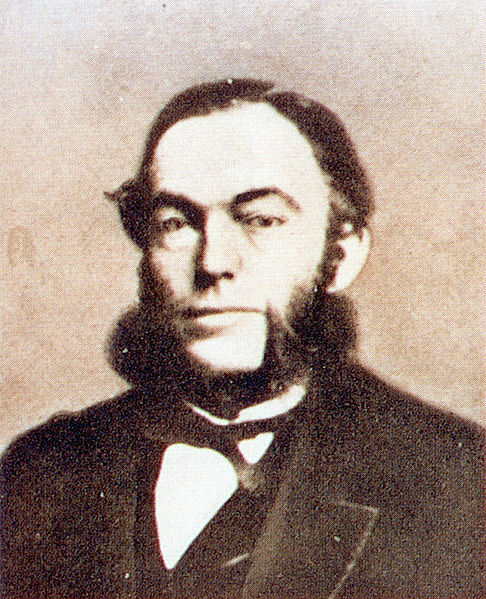
After the war, as part of an effort to establish a more cooperative relationship with the foreign powers, Qing officials in the new Zongli Yamen (Tsungli Yamen in the spelling of the day), the new foreign office created in 1861, decided to take on Inspector General H.N. Lay and his Customs Service. Over the next few years, customs houses were opened in each of the treaty ports, and they reported directly to the Zongli Yamen in Beijing.
Initially uncertain about the idea, the Zongli Yamen quickly realized that the Customs Service was a valuable asset. The Service assessed the taxes owed on imports and exports carried on foreign ships, but did not actually collect the taxes, which were instead paid to Chinese customs banks. This separation of the role of assessment and collection of customs revenues helped to minimize opportunities for corruption. The Customs Service reported actual assessments to the Zongli Yamen in Beijing, ensuring that the central government had a stronger control over customs revenues than over other taxes.
But leadership was a problem. The first Inspector General (I.G.) H.N. Lay took an aggressive attitude toward his Chinese employers. In 1862, with the approval of the Zongli Yamen, he purchased a flotilla of steam gunboats for use in the war against the Taiping rebels. He hired a British Naval Officer named Sherard Osborn to lead the flotilla, but on his return to China, it was revealed that by written agreement, Osborn would only accept orders from Lay, not from the Qing officials, a situation that was unacceptable to officials in both the provinces and Beijing. Moreover, Lay proceeded to make a series of outrageous demands for power and status within the Qing Government, and threatened to take over the collection of Customs dues. After a brief discussion with foreign diplomats, Lay was dismissed and the flotilla was returned to Britain. Lay’s deputy, Robert Hart, was selected to be the new Inspector General, a role he would remain in until his death in 1911.[2]
The Customs Under the Leadership of Sir Robert Hart, 1863–1908
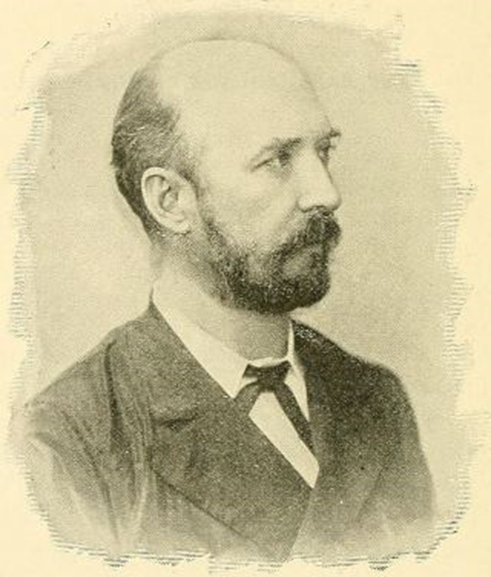
Lay’s ignominious dismissal established the terms of the relationship between the Qing Government and the Inspector General. Hart was perfect for the role: he had been in Beijing for extended periods the preceding three years, and had developed good relationships with the officials in the Zongli Yamen. Within two years of his appointment, the Yamen ministers asked him to establish his headquarters in the capital permanently, one of the privileges that Lay demanded. Hart built an efficient organization that was respected by both Chinese and foreigners. However, he understood, first and foremost, that he was an employee of the government of China. He was always sensitive to the concerns of his Zongli Yamen overseers. He was similarly solicitous of powerful officials like Li Hongzhang. In perhaps his most famous instruction to the Customs organization, he declared, “It is to be distinctly and constantly kept in mind that the Inspectorate of [the] Customs is a Chinese, and not a foreign Service, and as such, it is the duty of each of its members to conduct himself towards Chinese, people as well as officials, in such a way as to avoid all cause of offence and ill-feeling.” Hart’s consistent message to the foreign officials in the Inspectorate was that while they could and should suggest areas of modernization and improvement, they must respect the authority of the Qing officials.[3]
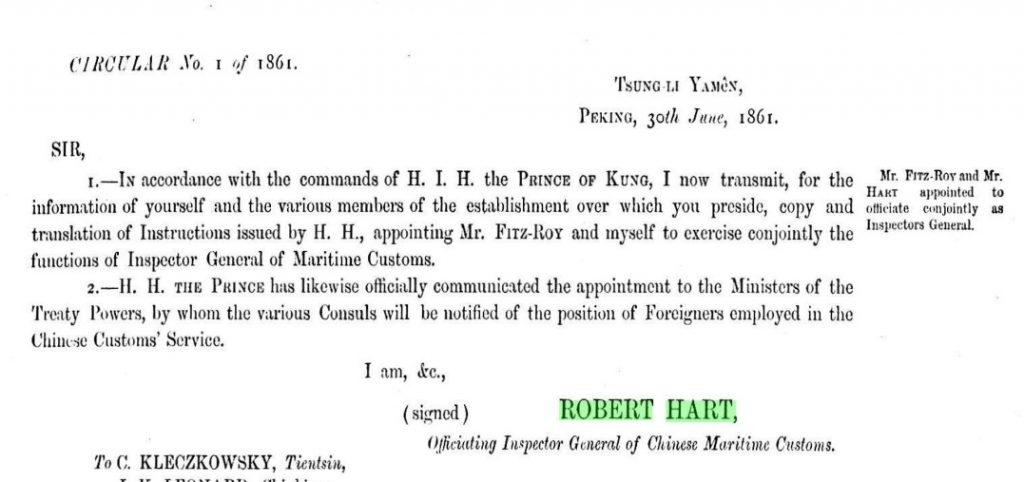
Hart was an able institution builder, but his Customs Service was a study in contrasts. With a carefully structured hierarchical organization, functionally defined roles, and published rules, it was in many ways a classic administrative bureaucracy. There were customs houses in every treaty port, a headquarters in Beijing, and a London office. In Shanghai, in addition to the customs house, Hart created a statistical department, with an in-house printing and publication establishment. The Customs Service published extensive reports, mostly on commerce and taxation, but on other areas as well, including medical reports and weather reports, and numerous reports relating to the activities of the Customs Service. The Inspector General’s circulars, found in this newly created database, embody the rules and standards that Hart and his successors at the IG expected all customs staff to follow. Through these documents, he also sought to develop a culture of professionalism, integrity, and loyalty to the organization. This institutional framework was perpetuated by subsequent Inspectors General.
Hart, who came from a middle-class protestant family from Northern Ireland, and who had come to China to serve in the British consular service, tended to recruit men like himself: educated, able, and ambitious men looking for opportunities they were unlikely to find at home. Realizing that he couldn’t depend on finding quality foreign candidates in China, Hart began to recruit young men in Europe and the United States. The London Office of the Customs Service developed an examination to weed out unsuitable applicants. While most of the Customs officers were British, Hart took care to encourage other foreign nationals to apply, and promoted many to prominent roles, to ensure that the Customs was not seen as being too closely aligned with British interests. Chinese language training began on arrival in China. Some mastery in spoken and written Chinese was expected for retention and promotion, and higher levels of proficiency were encouraged.[4]
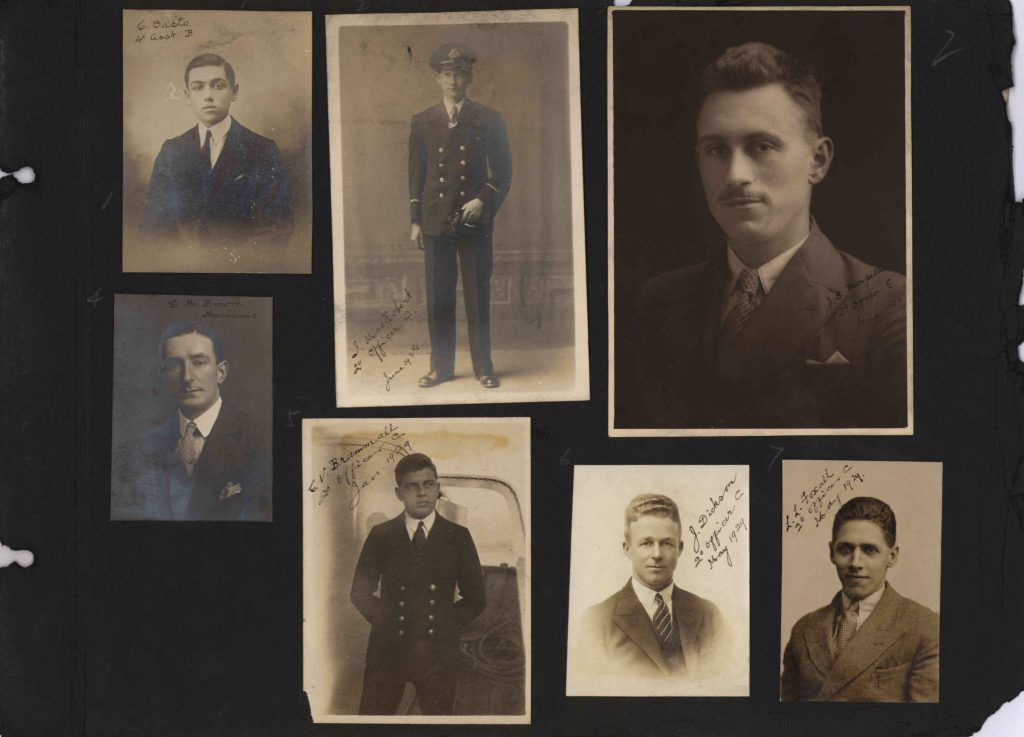
While much of this fits the patterns of modern civil service organization, the structure of the Customs Service was extraordinary. Hart gave himself essentially unfettered power—while he as Inspector General reported to the Zongli Yamen, everyone else in the customs reported to him. He made all decisions about promotions and transfer. In the eyes of his subordinates, he was prone to play favorites, and showed an infuriating inclination to nepotism. He recruited his brother James Hart, and his brother-in-law, Robert Bredon, into the service and rapidly promoted them to advanced positions, and at different times suggested both as possible successors. Francis Aglen, Hart’s eventual successor, was the son of a friend of Hart’s from Ireland. Another future Inspector General, whose rapid ascent infuriated other Customs officers in the 1880s and 1890s was Hart’s nephew, Frederick Maze.[5]
Nevertheless, in many respects, the decades from 1863 to 1895 represented a high point in the history of the Customs Service. Qing Government officials looked upon Hart and many of the senior customs officers as dependable advisors. At a time when few Chinese had high-level skills in Western languages, or any familiarity with Western customs and practices, Hart’s Customs Service provided badly needed linguistic and technical assistance. Customs officers accompanied Qing missions abroad, including investigations of the coolie traffic in Peru and Cuba, and organized Qing exhibits at world fairs. Hart made a number of diplomatic interventions that helped resolve crises, and was widely considered to be the most influential foreigner in China. The head of the London Office of the Service, James Duncan Campbell, at times functioned as an informal conduit on diplomatic and financial issues. Moreover, revenues from the Customs Service financed much of the Qing’s self-strengthening effort. Customs revenues were also used to guarantee foreign loans, which were limited in size and used judiciously, for example, to support Zuo Zongtang’s campaign to reconquer Xinjiang from the Muslim rebels.
The Customs Service reached a point of transition between the end of the First Sino-Japanese War in 1895 and the 1911 revolution. First and foremost, the Sino-Japanese war and the Boxer Rebellion ended in disaster for the Qing Government, which was forced to seek large foreign loans to pay for indemnities. These debts were secured against Customs revenues. This meant that foreign governments’ interest in China and their influence in the Customs Service were rising. Second, in this period, the scope of activities for the Customs Service expanded, including the development of a Chinese postal service, and later taking over the collection of “Native Customs” duties charged on Chinese shipping. These expansions of administrative authority further stressed the already strained resources of the Customs Service.[6] Third, the Boxer War in 1900 provoked a crisis in the Customs Service, when Hart and Deputy I.G. Robert Bredon were among the foreigners besieged in the Beijing legations. While both survived, the customs archives in Beijing were destroyed. During the siege, when it was assumed that Hart was dead, there was wild politicking over control of the service. Fourth, Hart was aging and in declining health. Among Customs officers, there were deep frustrations with his management of the organization, and growing concerns about whether he was up to the job. The questions of who would be his replacement became a subject of widespread gossip and speculation. Foreign diplomats began to pressure the Qing Government on the issue. The British Minister in Beijing extracted a commitment that the next IG would be a Briton, and identified preferred candidates. Hart, unhappy with all of this, actively undermined potential successors.
The relationship with the Chinese Government was changing, as well. In the aftermath of the terrible humiliations by foreign powers, nationalism in China was on the rise, and critics were increasingly suspicious of the role of the Customs Service. Qing officials expressed dissatisfaction that after 40 years, Hart had made no serious effort to integrate Chinese into the “indoor staff,” the organization’s managerial elite. In 1906, in the midst of a major reorganization of the government in Beijing, the Customs Service, which since its inception had reported to the Zongli Yamen (renamed the Ministry of Foreign Affairs after the Boxer Rebellion), was shifted to a new agency, the Bureau of Revenue (shuiwuchu). While ostensibly this was simply about administrative rationalization, it was clearly a political move aimed at diminishing the influence of the Customs Service. When foreign diplomats protested this change, the government held firm. Hart wisely kept quiet, and the transition was relatively seamless.[7]
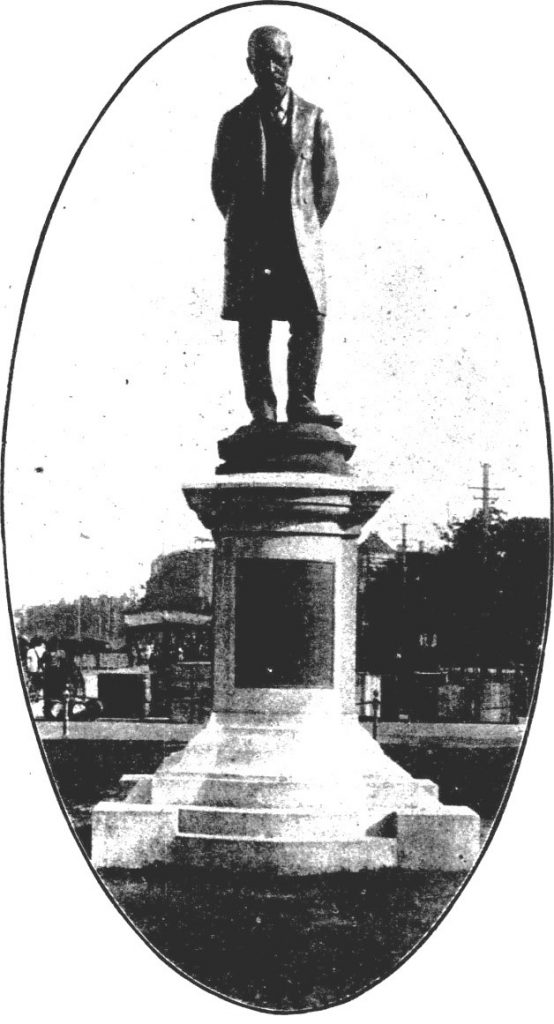
Hart went on leave in 1908, never to return. His Deputy, Robert Bredon, served briefly as an officiating Inspector General. In 1910, the Bureau of Revenue appointed Francis Aglen, a Briton, Hart’s protégé, as Officiating Inspector General, and a year later, he was promoted to Acting Inspector General pending Hart’s formal retirement. Hart died in September 1911, and Aglen became the Inspector General.[8]
The above is an excerpt from ‘The Chinese Maritime Customs Service, 1854–1949: An Introduction’ contributed by Professor Richard S. Horowitz to accompany China from Empire to Republic: Records of the Maritime Customs Service (1854-1949), a Gale digital primary source collection to be released on August 25. The full essay is available here.
[1] On the background to the Customs, see John King Fairbank, Trade and Diplomacy on the China Coast; the Opening of the Treaty Ports, 1842–1854. (Cambridge: Harvard University Press, 1953). On Lay, see Jack Gerson, Horatio Nelson Lay and Sino-British Relations, 1854–1864. (Cambridge: East Asian Research Center, Harvard University, 1972).
The only comprehensive treatment of the history of the Maritime Customs is Hans J. van de Ven, Breaking with the Past: The Maritime Customs Service and the Global Origins of Modernity in China. (New York: Columbia University Press, 2014).
[2] On this episode, see Richard S. Horowitz, “Mandarins and Customs Inspectors: Western Imperialism in Nineteenth Century China Reconsidered.” Papers on Chinese History 7 (January 1998): 41–57.
[3] On Hart’s relationship with the Zongli Yamen, see Richard Horowitz, “Politics, Power and the Chinese Maritime Customs: The Qing Restoration and the Ascent of Robert Hart.” Modern Asian Studies 40, no. 3 (July 2006): 549–81. The quote is from Hart’s famous Circular No. 8 of 1864. Two published volumes of Hart’s diaries are extremely insightful. Katherine Frost Bruner, John King Fairbank, and Richard J. Smith. eds. Entering China’s Service: Robert Hart’s Journals, 1854–1863. (Cambridge, Mass: Council on East Asian Studies, Harvard University, 1986), and Richard J. Smith, John King Fairbank, and Katherine Frost Bruner eds., Robert Hart and China’s Early Modernization: His Journals, 1863–1866. (Cambridge, Mass: Council on East Asian Studies, Harvard University, 1991).
[4] van de Ven, Breaking with the Past, ch. 2, See also Stanley Fowler Wright, Hart and the Chinese Customs. (Belfast: Published for the Queen’s University by W. Mullan, 1950), a detailed and admiring account of Hart’s management of the Customs in this period.
[5] Richard S. Horowitz, “Ambiguities of an Imperial Institution: Crisis and Transition in an Imperial Institution, 1895–1911.” Journal of Imperial and Commonwealth History, 36.2(2008): 283–5.
[6] Weipin Tsai, “The Qing Empire’s Last Flowering: The Expansion of China’s Post Office at the Turn of the Twentieth Century” Modern Asian Studies 49.3 (2015): 895–930; Weipin Tsai, “The Inspector General’s Last Prize: The Chinese Native Customs Service” Journal of Imperial and Commonwealth History 36.2 (2008): 243–258.
[7] The preceding two paragraphs summarize Horowitz, “Ambiguities of an Imperial Institution: Crisis and Transition in an Imperial Institution, 1895–1911.”
[8] For a view of this period sympathetic to Hart, see Wright, Hart, chs. 22–24. Horowitz, “Ambiguities of an Imperial Institution,” offers a contrasting approach.nike

